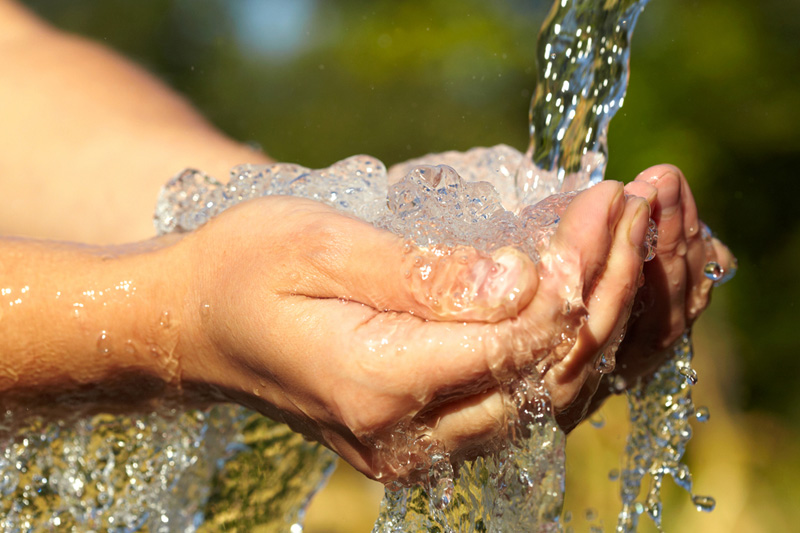(Bloomberg Law) -- A second round of drastic water cuts from the Colorado River is set to hit Arizona, Nevada, and Mexico as climate change-driven drought deepens the water shortage in the Southwest, the Interior Department announced Tuesday.
The Bureau of Reclamation called for all seven Colorado River Basin states to conserve water over the next four years and said it will withhold 21% of Arizona’s annual allocation of Colorado River water in 2023 as the first-ever water shortage in the Colorado River Basin continues for another year, the agency said.
The response from Arizona, which is taking the brunt of the cuts and earlier proposed to join neighboring states and Mexico in reducing water use by 2 million acre-feet, was swift.
The states need to save so much water—4.2 million acre-feet— that the savings would fill Lake Okeechobee each year, the bureau said. Lakes Mead and Powell—reservoirs on the Colorado River that supply the Southwest with water and hydropower—are together at 28% of their capacity, the agency said.
The 2023 cuts, called “water savings contributions,” are based on existing agreements developed by Congress and are coming initially from Lake Mead, the agency said. They also include an 8% cut to the state of Nevada, and a 7% cut in Mexico’s share of the river water.
The drought isn’t yet severe enough for California to lose its share yet, the agency said.
The Colorado River is the source of water for 40 million people between Denver and Los Angeles.
Failure to Plan
The cuts and the bureau’s basin-wide call for conservation over the next four years come after the Colorado River Basin states themselves failed to devise their own plan to conserve water. The bureau asked the states in June to develop a long-term water conservation plan by mid-August, but negotiations have reached an impasse.
“States have not collectively identified and adopted specific actions of significant magnitude that wold stabilize the system,” Camille Touton, Bureau of Reclamation commissioner, told reporters Tuesday.
Touton declined to say whether the bureau will impose mandatory water conservation measures in all seven basin states each year through 2026.
“Today we’re starting the process, and more information will follow,” Touton said, adding that the agency is pushing the states to reach a “consensus solution” through collaboration.
Intensified by Climate Change
Human-caused climate change has intensified the West’s extreme 23-year drought, which is responsible for rising temperatures, megafires burning large swaths of forest, drying up streams, and making the Rocky Mountain snowpack’s ability to feed the Colorado River more uncertain.
“The system is approaching a tipping point,” Touton said, adding that protecting existing Colorado River infrastructure is one of the Biden administration’s highest priorities even as the drought could render the reservoirs unable to withstand the ravages of climate change.
The drought and the historically low levels of lakes Powell and Mead—threatening their ability to generate hydropower— have prompted the bureau to call for water conservation measures through 2026 in all seven states in the Colorado River Basin.
The bureau is forcing water allocation cuts to ensure Lake Powell doesn’t drop so low it can’t generate hydropower, Touton said.
Water Shortage
The bureau previously declared a water shortage on the Colorado River in May, withholding 480,000 acre feet of water in Lake Powell, a reservoir that collects water from Rocky Mountain states and sends it to California, Arizona and Nevada. Arizona’s cut in 2023 will be 592,000 acre-feet of water.
The bureau may withhold more water in Lake Powell in 2023 depending on drought conditions in the region. Officials will make that determination in April 2023.
Over the next four years, the Bureau of Reclamation said it is likely to reduce the water it releases from Lake Powell to keep the lake from dropping any further, and the agency will study whether Glen Canyon Dam on Lake Powell and Hoover Dam on Lake Mead can be modified to allow water to be released at lower lake levels.
“Every sector in every state has a responsibility to ensure that water is used with maximum efficiency. In order to avoid a catastrophic collapse of the Colorado River System and a future of uncertainty and conflict, water use in the Basin must be reduced,” Tanya Trujillo, assistant Interior secretary for water and science, said in a statement.
State Tensions Rising
The response suggested that tensions are quickly rising between the Upper Basin states of Arizona, California and Nevada, and the Upper Basin states of Colorado, New Mexico, Utah and Wyoming.
“It is unacceptable for Arizona to continue to carry a disproportionate burden of reductions for the benefit of others who have not contributed,” Arizona Department of Water Resources Director Tom Buschatzke and Central Arizona Project General Manager Ted Cook said in a joint statement.
The basin states haven’t produced a viable water conservation plan, nor has the Bureau of Reclamation, they said.
“Exactly nothing in terms of meaningful collective action” occurred among all seven states since June to achieve a voluntary solution to avoid federal cuts, John Entsminger, general manager of the Southern Nevada Water Authority, said in a statement.
But each of the basin states need to come together to conserve water, he said.
“The magnitude of the problem is so large that every single water user in every single sector must contribute solutions to this problem,” Entsminger said.
He added that California, Arizona, and Nevada carry the biggest responsibility for water conservation because most of the people in the basin live there.
Western Democrats fought to secure $4 billion in additional drought resiliency funding in the tax, climate, and health legislation (H.R. 5376) that President Joe Biden will sign into law Tuesday. That money could help ease some of the pain the Upper and Lower Basin states are facing.
The 2021 bipartisan infrastructure law (Public Law 117-58) also included $8.3 billion for Reclamation to upgrade water delivery systems, invest in water recycling, and address drought.
